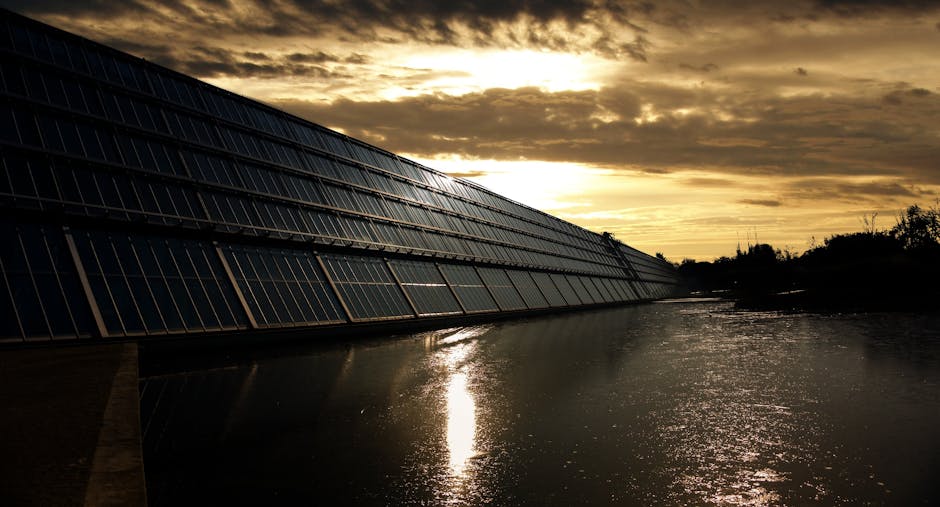The Debate on Renewable Energy Subsidies
Have you ever wondered why some energy sources seem to get more help from the government than others? Renewable energy subsidies are at the center of this discussion. As the world shifts towards cleaner energy, the role of government support becomes crucial. But are these subsidies beneficial or harmful? Lets dive in!
What Are Renewable Energy Subsidies?

Renewable energy subsidies are financial aids provided by the government to encourage the use of solar, wind, and other clean energy sources. Think of it like a discount at your favorite store. When you buy something on sale, you save money. Similarly, these subsidies make renewable energy more affordable for businesses and homeowners.
- Tax credits
- Grants
- Low-interest loans
- Feed-in tariffs
These tools help lower the costs of installing solar panels or wind turbines. They can also make renewable energy projects more appealing to investors. But the big question is: do these subsidies really work?
Why Do We Need Renewable Energy Subsidies?

As fossil fuels become scarcer, renewable energy is more important than ever. Heres why subsidies matter:
- Environmental Impact: Renewable energy reduces greenhouse gas emissions. This helps fight climate change.
- Energy Independence: Subsidies promote local energy sources. This reduces reliance on imported fuels.
- Job Creation: The renewable sector can create millions of jobs. Solar and wind jobs are growing faster than fossil fuel jobs.
According to the International Renewable Energy Agency (IRENA), renewable energy jobs reached 12 million globally in 2020. That’s a significant boost for economies and communities.
How Do Subsidies Affect Prices?

Lets consider how subsidies influence energy prices. When the government offers financial support, it lowers the cost of renewable energy. This can lead to:
- Lower electricity bills for consumers.
- Increased competition among energy providers.
- Faster growth of renewable energy markets.
This sounds great, but some argue it can lead to market distortions. Critics say these subsidies can unfairly favor renewable energy over traditional sources, like coal and natural gas.
What Are the Arguments For and Against Renewable Energy Subsidies?

In the debate around renewable energy subsidies, there are passionate voices on both sides. Lets explore the main arguments.
Arguments For Subsidies
- Encourages Transition: Subsidies help speed up the shift from fossil fuels to renewable sources.
- Long-Term Savings: Although they cost money now, renewable energy can lead to lower costs in the future.
- Public Support: Many people want cleaner energy. Subsidies help meet this demand.
As renewable energy advocate Dr. Jane Smith points out, Subsidies are a crucial stepping stone. They help level the playing field for renewable technologies.
Arguments Against Subsidies
- Taxpayer Burden: Critics argue that subsidies can be costly for taxpayers.
- Market Distortion: Some say subsidies can create an uneven playing field, harming traditional energy sectors.
- Dependency: Theres concern that companies may become reliant on subsidies and fail to innovate.
In an ideal world, the market would determine energy prices without government interference. But many believe we aren’t there yet.
Are Subsidies Effective?
Measuring the effectiveness of subsidies can be tricky. Some studies show that they successfully drive down renewable energy costs. For example, the cost of solar energy has dropped by over 80% in the last decade, partly due to subsidies.
Yet, others argue the benefits can vary widely. While some areas thrive, others struggle without additional support. A recent report from the U.S. Department of Energy suggests that not all subsidy programs yield positive results.
What Happens If We Remove Subsidies?
Imagine walking into a grocery store where your favorite snacks are suddenly twice the price. that’s what could happen if renewable energy subsidies disappeared. Here are some potential impacts:
- Higher Costs: Without subsidies, the price of renewable energy could increase, making it less attractive.
- Slower Growth: The renewable sector could see slowed investments and job growth.
- Environmental Setback: A shift back to fossil fuels could occur, reversing climate progress.
In many ways, subsidies act as a safety net for the renewable sector. They help keep the momentum going in an industry that is still finding it’s footing.
What Do Experts Say?
Experts have mixed opinions on the future of subsidies. Some believe they are essential for the transition to renewable energy. Others argue for a gradual phase-out as the market matures.
Dr. Emily Johnson, an energy economist, states, Subsidies are critical now, but we must prepare for a future where renewables can stand on their own.
what’s Next for Renewable Energy Subsidies?
The future of renewable energy subsidies will likely involve a mix of support and regulation. As technologies improve, some believe the focus will shift to more targeted support. This means helping the most promising innovations rather than blanket subsidies.
Some countries are already paving the way. For example, Germany has introduced a system that rewards efficient renewable projects over outdated ones.
Take Action: What Can You Do?
Want to get involved in the renewable energy conversation? Here are a few actionable steps:
- Educate yourself on local energy policies.
- Support clean energy initiatives in your community.
- Consider renewable energy options for your home, like solar panels.
Every small action helps push society toward a cleaner, more sustainable future.
Conclusion: The Future of Renewable Energy Subsidies
The debate on renewable energy subsidies is complex, but it is vital for our future. As we weigh the pros and cons, one thing is certain: these subsidies play a significant role in shaping the energy landscape. Whether you support them or not, understanding their impact is crucial.
Want to learn more about renewable energy? Check out our post on Renewable Energy 101 for a deeper dive.
In this evolving conversation, it’s important to stay informed and engaged. The choices we make today will influence generations to come.



